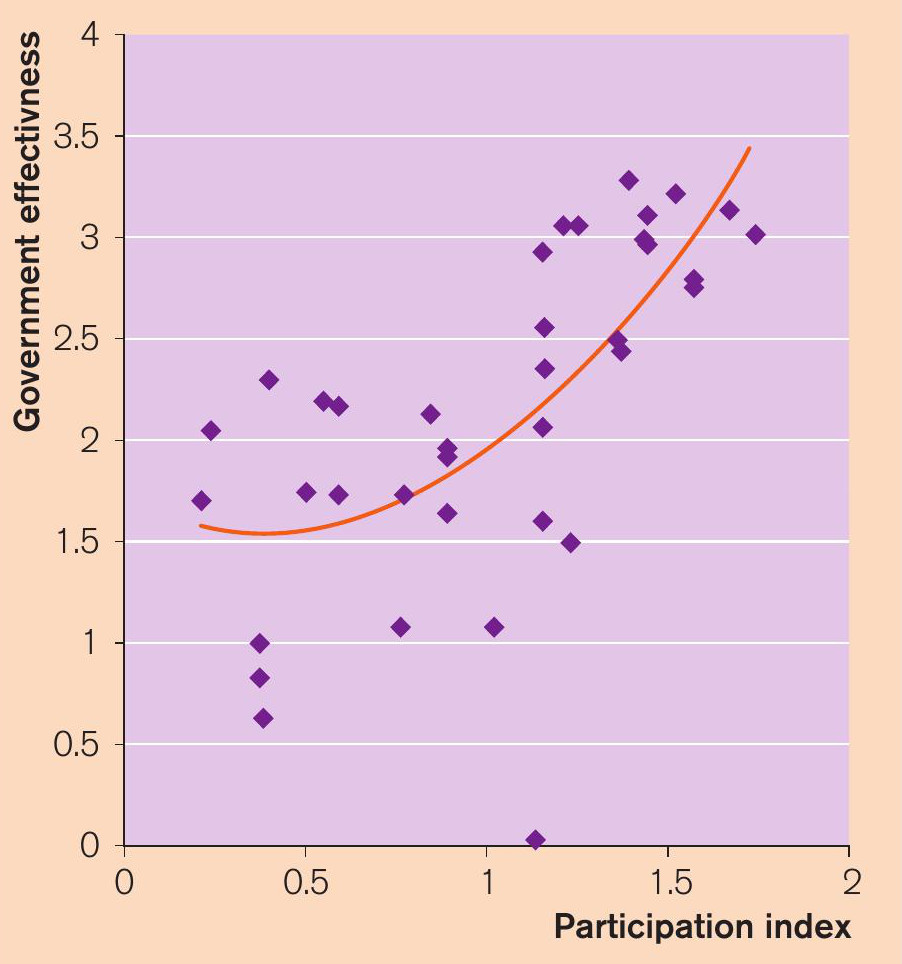
The description below of the state of political participation in Britain comes from the report of the Power Commission, an investigation of the state of democracy in Britain, published in 2006.
The report outlines some of the important changes that have occurred in political participation in Britain over time. The relationship between the state and participation is central to the analysis, and we know that key forms of participation such as voting and party membership have declined significantly over time. At the same time, other forms of participation, such as consumer involvement in buying or boycotting products for political reasons, are growing in importance. Unfortunately, voting is much more important for democracy than boycotting, since it determines who governs the state, so these developments have not left the civic culture undamaged. Notwithstanding this point, why should we be concerned if some important types of participation have declined and the civic culture in Britain has deteriorated over time? What difference does it make (see Box 1)?
Your organisation does not have access to this article.
Sign up today to give your students the edge they need to achieve their best grades with subject expertise
Subscribe




